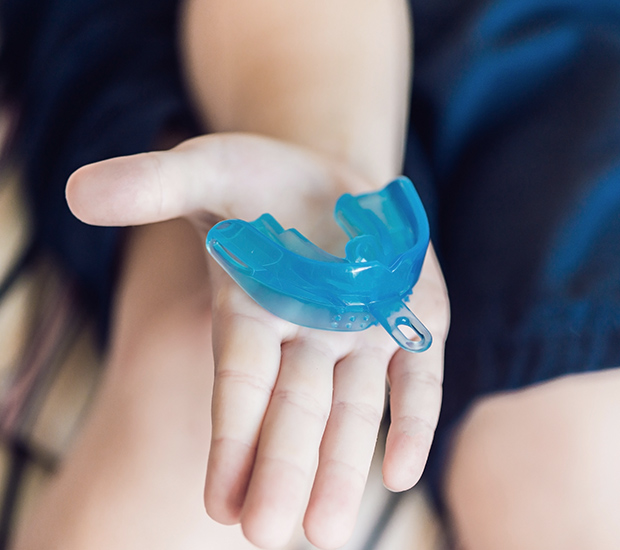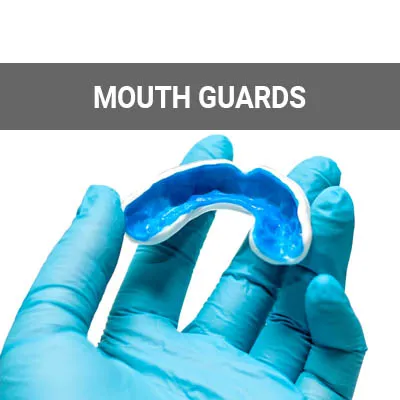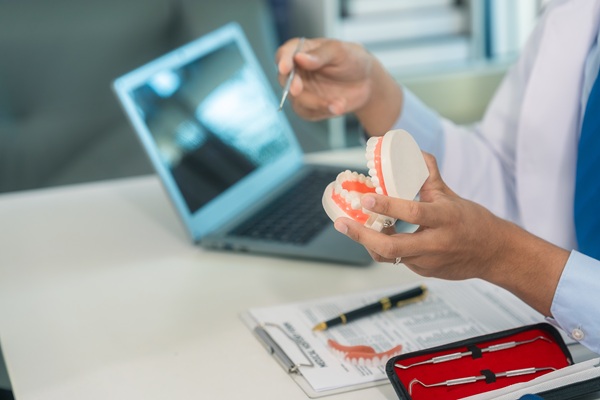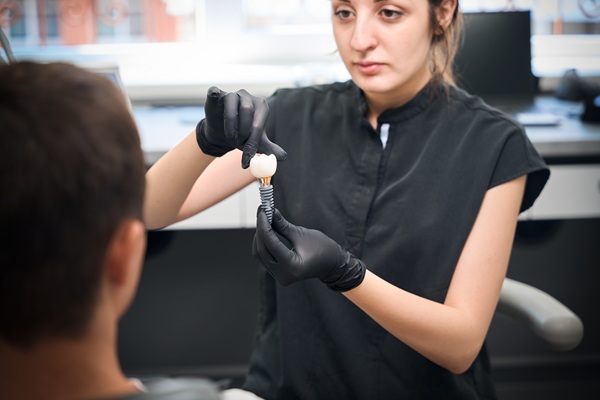Night Guards Alpharetta, GA
Tooth grinding can trigger jaw pain and restless slumber. A night guard can help if you struggle to stop grinding or clenching your teeth. Customized night guards adapt to your dental needs and mouth shape. Night guards gently cushion your jaws during sleep and prevent dental damage.
Dental night guards are available at Windward Parkway Dentistry in Alpharetta and the surrounding area. Each custom-fitted mouth protector is designed to ease bruxism symptoms, a condition that results from tooth grinding. Over time, bruxism can lead to chipped teeth and jaw misalignment. Night guards help prevent these troublesome dental problems. Call us at (770) 814-6224 to schedule an appointment.
Night Guards vs. Mouth Guards
Though night guards and mouth guards both serve similar purposes, each still have several distinct purposes and reasons for use. Mouth guards protect the teeth during physical activity (e.g., sports), usually during the day. As such, they are usually recommended for athletes and otherwise active patients.
In contrast, night guards protect the teeth from grinding or clenching during sleep. This condition is also known as sleep bruxism, and can cause severe damage to the teeth. If left untreated, it can even lead to loss of tooth structure, gum recession, and facial changes. Fortunately, night guards can help.
It is essential for patients to wear both forms of this appliance regularly and as directed. Otherwise, they run the risk of unnecessary orofacial trauma and damage to the teeth. Most patients with night guards must wear them nightly. Patients with braces may also benefit from mouth guards for sports or night guards during sleep.
“…night guards are designed to protect the teeth from grinding or clenching during sleep.”
Conditions Treated by Night Guards
Bruxism
Bruxism is a common condition that causes the patient to unconsciously clench or grind their teeth. It often occurs during the night when the patient is asleep. Thus, it is not uncommon for patients to be unaware they have the condition at all.
According to the National Sleep Foundation, 8% of adults and between 14% to 20% of children under age 11 suffer from sleep bruxism. If left untreated, bruxism can lead to severe dental issues. Night guards provide extra cushioning to prevent any chips in the teeth and protect the enamel of the teeth from the effects of jaw clenching.
Sleep Apnea
Sleep apnea is a potentially serious sleep disorder that causes the patient's breathing to periodically stop and start during their sleep. There are three main types of sleep apnea: obstructive sleep apnea, central sleep apnea, and complex sleep apnea syndrome.
Obstructive sleep apnea can occur due to misplacement of the tongue and jaw blocking the airway. Night guards can help realign the jaw, thus preventing certain sleep apnea symptoms and any potentially severe complications.
Temporomandibular Joint Disorders (TMJD)
The temporomandibular joint (TMJ) connects the lower jaw to the skull. It exists on either side of the head in front of the ears, and it enables the jaw to open and close. Disorders of the TMJ joint may cause facial pain, difficulty moving the joint, and tenderness at the joint.
Night guards can help the jaw muscles sit more naturally while sleeping, thus reducing any excess strain. This may help reduce any painful symptoms of TMJ disorder. There are several different types of night guards for TMJ, including stabilization or flat plane splints, modified Hawley splints, nociceptive trigeminal inhibition tension suppression systems (NTI-tss), and repositioning splints.
“Night guards provide extra cushioning to prevent any chips and protect the enamel of the teeth from the effects of jaw clenching.”
Benefits of Night Guards
Night guards prevent the upper and lower teeth from coming into contact with each other, thus ensuring that no unnecessary tooth damage can take place. As such, patients no longer have to worry about contributing to enamel erosion or gum recession in their sleep — the former of which leads to permanent damage.
Night guards also reduce jaw tension, pain, and headaches. Jaw joints that are incorrectly aligned can lead to temporomandibular joint disorders, also known as TMJ disorder. Night guards help the jaw relax and guide the joint into place. Headaches and pain are also side effects of clenching the jaw and grinding the teeth.
“Night guards help the jaw relax and guide the joint into place.”
Check out what others are saying about our dental services on Yelp: Night Guards in Alpharetta, GA
Types of Night Guards
Many patients are intimidated by the prospect of wearing a night guard because they mistakenly believe it will look clunky and unnatural. However, today's night guards consist of translucent acrylic, making them virtually invisible.
According to the American Sleep Association, there are three basic types of night guards: soft night guards, dual laminate night guards, and hard night guards. Soft night guards are the most frequently used type of night guard for mild or occasional bruxism. It offers the most comfortable fit, and it is the easiest to get used to.
Dual laminate night guards are designed for patients with moderate to severe bruxism. They offer the "best of both worlds" — soft on the inside and hard on the outside. As such, they can endure heavy clenching and grinding.
Finally, hard night guards are suitable for even the most severe cases of teeth grinding and TMJ disorder. These night guards prevent the teeth from shifting. All these night guards are best ordered directly through a dentist for the most accurate fit.
“…today’s night guards comprise translucent acrylic, making them virtually invisible.”
Questions Answered on This Page
Q. How do I take care of my night guard?
Q. What is the difference between mouth guards and night guards?
Q. What conditions can night guards treat?
Q. What are the benefits of night guards?
Q. What are the different types of night guards?
People Also Ask
Q. How do lifestyle choices affect dental health?
Q. How are custom-made mouth guards made?
Caring for Your Night Guard
Taking care of one's teeth allows the night guard to provide optimal protection. Patients should make sure to brush and floss before inserting the device. They should also take care to clean it before and after each use.
Begin by rinsing the night guard with clean water. Then brush the device using your toothbrush and toothpaste. Once the night guard is in place, patients should not consume anything except plain water. They should also try not to expose the night guard to heat, either. Hot water or direct sunlight can warp the material.
Contact our team if the device gets lost or becomes damaged. Using a damaged or poorly fitted device can risk your oral health. We can arrange for a replacement night guard.
“Patients should make sure to brush and floss before inserting the device.”
Frequently Asked Questions
Q. Do I need to wear a night guard on both the upper and lower teeth?
A. No. Many patients choose to wear a night guard only on the upper teeth. Windward Parkway Dentistry can help you determine which is the best fit for you during a one-on-one consultation.
Q. How long will my night guard last?
A. The answer varies on a case-by-case basis. Night guards can typically last anywhere from six months to a few years. Patients with minor teeth grinding can typically expect their night guards to last longer.
Q. Do I need to take impressions for both the upper and lower teeth?
A. Yes. This allows us to ensure the most comfortable fit for your night guard. To best protect your teeth, we must account for how they naturally come together.
Q. Do night guards cure bruxism?
A. No. Unfortunately, there is no known cure for bruxism. However, night guards can protect the teeth against its effects.
Q. How can I tell if I have bruxism?
A. It can be difficult to tell if you grind your teeth in your sleep, especially if you live alone. However, there are some telltale signs. These include waking up with headaches, dull tension headaches, chipped or loose teeth, increased tooth pain and sensitivity, and more. If you find yourself experiencing any of these symptoms, let your dentist know immediately.
Dental Terminology
Call Us Today
Millions of Americans struggle with tooth grinding and clenching. These problems can lead to jaw pain, tooth misalignment, and restless slumber. A customized night guard protects your teeth and helps you enjoy a restful night's sleep.
Do not let conditions like bruxism destroy your oral health. Let Windward Parkway Dentistry in Alpharetta help you choose a night guard. Call us at 770-814-6224 to schedule an appointment.
Helpful Related Links
- American Dental Association (ADA). Glossary of Dental Clinical Terms. 2024
- American Academy of Cosmetic Dentistry® (AACD). Home Page. 2024
- WebMD. WebMD’s Oral Care Guide. 2024
About our business and website security
- We accept the following payment methods: Cash, Check, Discover, MasterCard, and Visa
- We serve patients from the following counties: Fulton County
- We serve patients from the following cities: Alpharetta, Bethany Crossing, Herring Township, and Milton
- Norton Safe Web. View Details
- Trend Micro Site Safety Center. View Details
Back to top of Night Guards











